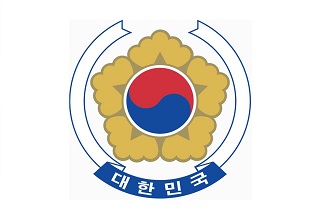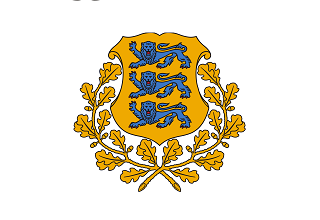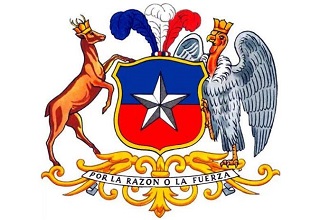Regarding the Inspection and Quarantine Requirements for Dairy Products from Saudi Arabia to China
According to the regulations on inspection, quarantine and sanitation requirements for Saudi dairy products exported to China signed by China Customs and the Saudi Ministry of Agriculture, from the date of this announcement, Saudi dairy products that meet the inspection, quarantine and sanitation requirements are allowed to be imported:
I. Inspection and quarantine basis
(I) "Law of the People's Republic of China on Entry and Exit Animal and Plant Quarantine" and its implementing regulations, "Law of the People's Republic of China on Import and Export Commodity Inspection" and its implementing regulations, "Food Safety Law of the People's Republic of China" and its implementing regulations.
(II) "Measures for the Administration of Import and Export Food Safety of the People's Republic of China" and "Regulations on the Registration and Administration of Overseas Production Enterprises of Imported Foods of the People's Republic of China".
(III) "Protocol on Inspection, Quarantine and Sanitation Requirements for Saudi Dairy Products Exported to China between the General Administration of Customs of the People's Republic of China and the Ministry of Environment, Water Resources and Agriculture of the Kingdom of Saudi Arabia".
(IV) "Announcement No. 114 of the General Administration of Customs in 2021 (Announcement on Clarifying the Relevant Requirements for Inspection and Quarantine of Imported Dairy Products)".
II. Products allowed for import
Saudi dairy products allowed for import refer to foods originating in Saudi Arabia and processed with cow milk as the main raw material, including milk powder, colostrum powder, milk-based infant formula, sterilized milk, modified milk, fermented milk, cheese and processed cheese, cream, butter, anhydrous butter, concentrated milk, whey powder, etc.
III. Requirements for manufacturers
Dairy manufacturers exported to China must be approved or registered by the Saudi Ministry of Agriculture, produced in Saudi Arabia under the supervision of the Saudi Ministry of Agriculture, and comply with the relevant animal health and public health requirements of China and Saudi Arabia.
According to the "Food Safety Law of the People's Republic of China" and the "Regulations on the Registration and Administration of Overseas Manufacturers of Imported Foods of the People's Republic of China", manufacturers exporting dairy products to China shall be registered in China, and products produced by unregistered enterprises shall not be exported to China.
IV. Requirements for dairy animals providing raw milk
Dairy animals providing raw milk for dairy products exported to China must meet the following requirements:
(i) They come from farms that meet the following conditions:
1. The farm's foot-and-mouth disease quarantine restrictions have been lifted for at least 2 months.
2. The farm has not been subject to quarantine restrictions due to anthrax in the past 12 months.
3. No brucellosis, bovine tuberculosis, para tuberculosis, rinderpest, rift valley fever, or contagious bovine pleuropneumonia has been found in the dairy farm.
4. The farm is supervised by the Saudi Ministry of Agriculture.
5. The farm and its surrounding areas are not subject to quarantine restrictions due to animal diseases in accordance with the World Organization for Animal Health (WOAH) Code and Saudi Animal Health Regulations.
(ii) The animals have not been fed feed that is prohibited for animals in Saudi Arabia and China.
(iii) The Saudi Ministry of Agriculture has formulated a national residue monitoring plan and requires companies to test raw milk.
(iv) While accepting the monitoring of the Saudi National Residue Monitoring Plan, production companies should also ensure that dairy products exported to China comply with relevant Saudi regulations and China's national food safety standards.
(v) According to the Saudi Arabian national residue monitoring plan and raw milk test results, the residues of veterinary drugs, pesticides and other toxic and hazardous substances in dairy products exported to China do not exceed the maximum limits set by Chinese standards.
V. Certificate requirements
Dairy products exported to China shall be accompanied by a veterinary health certificate issued by the Saudi Arabian Ministry of Agriculture.
VI. Food safety requirements
(I) Dairy products exported to China shall comply with the provisions of Saudi Arabian and Chinese laws and regulations and the requirements of China's national food safety standards.
(II) All raw milk raw materials for dairy products exported to China come from Saudi Arabia.
(III) Dairy products exported to China shall be easily identifiable at all stages of processing and storage, and shall not be processed together with dairy products that do not comply with the provisions of this announcement.
(IV) Raw milk used to process dairy products exported to China does not contain milk during the application of antibiotics and during the withdrawal period, spoiled milk, and colostrum (except when used to process bovine colostrum powder).
(V) The product adopts one of the following processing procedures:
1. Sterilization process with a minimum temperature of 132°C for at least 1 second (UHT).
2. If the pH of the milk is lower than 7.0, a sterilization procedure (high temperature-transient pasteurization HTST) with a minimum temperature of 72°C for at least 15 seconds is used.
3. If the pH of the milk is 7.0 or above, the HTST procedure is used twice.
VII. Packaging and labeling requirements
Dairy products exported to China must be packaged with new materials that meet Chinese standards. The outer packaging must be marked in Chinese, Arabic or English with specifications, origin (specific to the state/province/city), destination, product name, weight, manufacturer name, registration number, production batch number, storage conditions, production date and shelf life.
The inner packaging must comply with relevant Chinese regulations, and the label should indicate the country of origin, product name, company registration number, manufacturer name, address and contact information, production date and shelf life, and production batch number.
VIII. Storage and transportation requirements
Dairy products exported to China must meet sanitary conditions throughout the entire process from packaging, storage to transportation to prevent contamination by toxic and hazardous substances. After the goods are loaded into the container, they should be sealed, and the seal number must be indicated in the veterinary health export certificate. The packaging must not be opened or changed during transportation.
GACC
May 30, 2025




